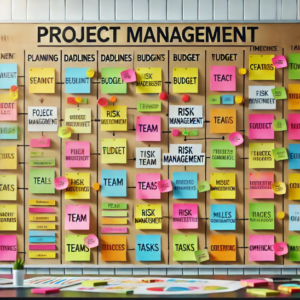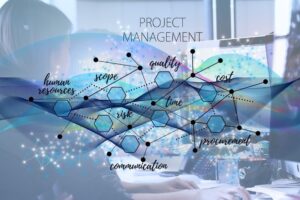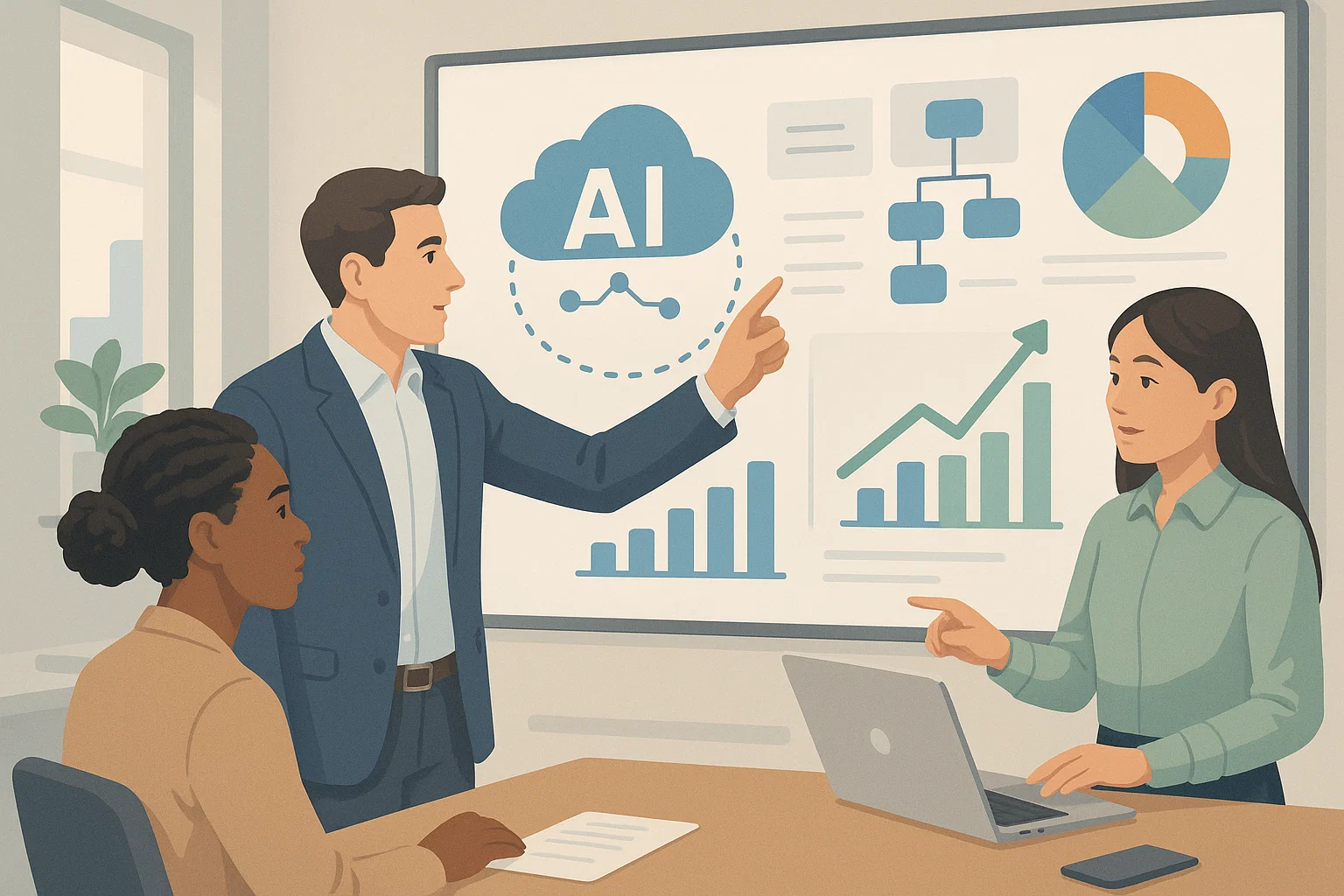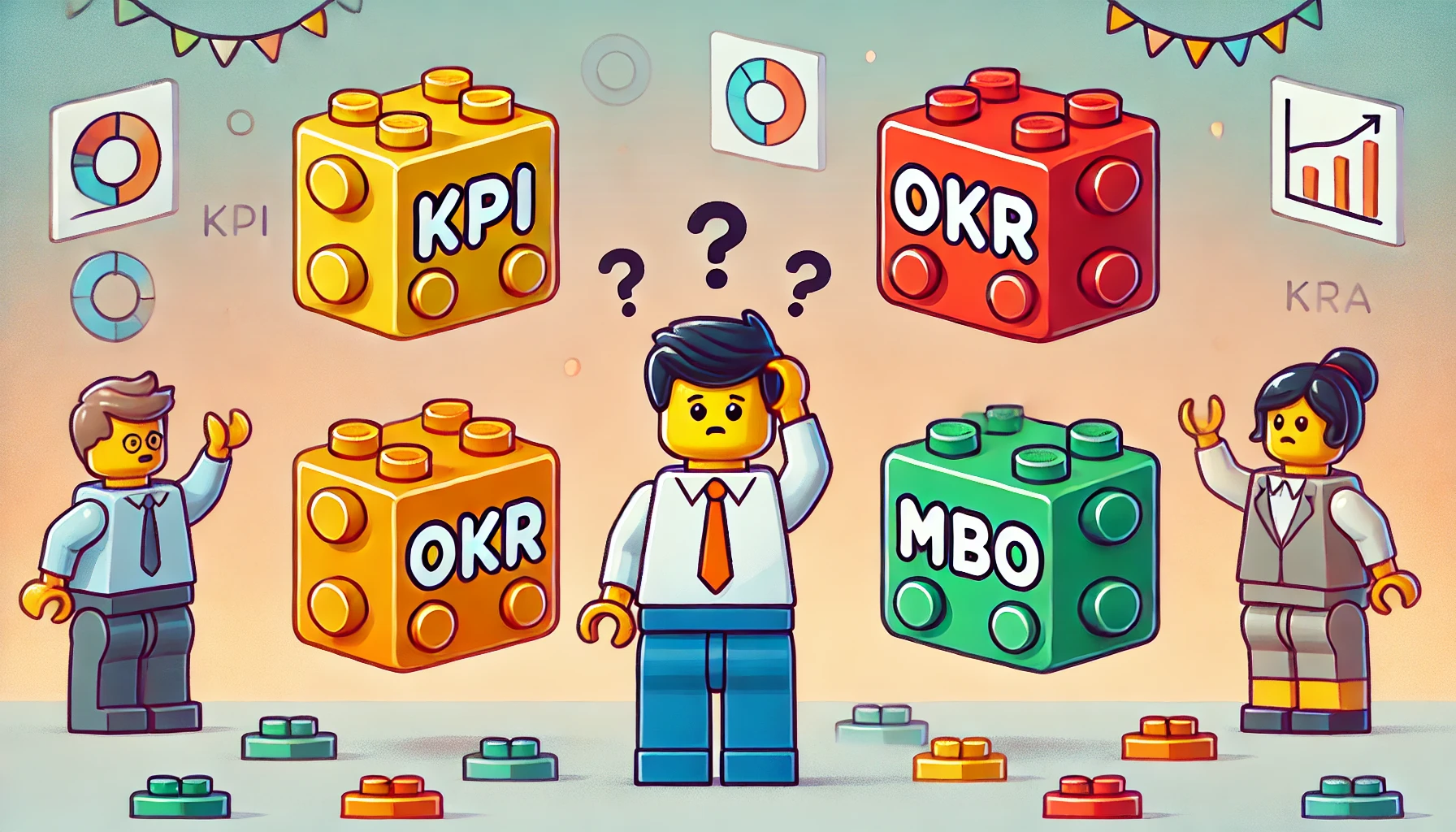
Have you ever wondered who is behind the success of large projects by managing resources and time, you have probably heard of the Project Manager and you might even be collaborating with one. But have you ever stopped to think about what this professional profile really consists of and what its responsibilities and competencies are?
Today, the P roject Manager is more relevant than ever in our ever-evolving digital environment.
roject Manager is more relevant than ever in our ever-evolving digital environment.
If you want to discover what exactly a Project Manager does, how you can become one, and why this role is so in demand today, we invite you to explore together its functions, essential skills and the importance of its role in organizations.
What is a Project Manager?
A Project Manager, or project manager, is the person with multidisciplinary and transversal knowledge, in charge of planning, executing and supervising each stage of a project to ensure its success. In other words, he or she coordinates the work of the team to meet the established objectives, ensuring that deadlines are met and available resources are optimized.
In an increasingly dynamic and competitive business environment, his role is crucial, as he not only coordinates the team’s tasks, but also manages resources, time and risks. The importance of this role has grown exponentially in the digital era, where market demands and technological changes require constant adaptation.
Main functions of a Project Manager

Do you know why the Project Manager is essential for the success of any project? Well, the answer is easy: He/she is in charge of steering the course of the project whether he/she sees that “the ship is sinking” or if he/she believes that there is a better option for your project: his/her functions cover a wide range of responsibilities that ensure the proper planning, execution and closure of the project, keeping its focus on the objectives and adapting to changes in the environment.
In the following, we will explore the main functions that define this essential role.
Planning and Organization
Planning and organization are the basis of a Project Manager’s work. This function involves the clear definition of project objectives, the establishment of a detailed schedule and the efficient allocation ofresources. . The Project Manager must create a comprehensive project plan that includes all necessary tasks, key milestones and deadlines, ensuring that the team has a clear roadmap to follow.
Resource Supervision and Control
Supervising and controlling resources includes good management of the work team, ensuring that each member is performing his or her tasks properly and that material and financial resources are used efficiently. The Project Manager must constantly monitor the progress of the project to ensure that it stays on track and make adjustments when necessary.
Risk Management and Problem Solving
Risk management and problem solving involves identifying potential risks that may affect the project and developing mitigation plans to address them. In addition, when unexpected problems arise, the Project Manager must be able to resolve them effectively and quickly to minimize any negative impact on the project.
Communication and Coordination
Effective communication and coordination are essential to the success of any project. The Project Manager acts as the main point of contact between the project team and stakeholders, ensuring that everyone is informed about project progress, changes and issues. This role includes organizing regular meetings, preparing progress reports and facilitating collaboration between team members and other stakeholders.
Digital Project Manager: Specialization and Functions
Within the field of project management, the Digital Project Manager is a specialization focused on digital and technology. Similar to the Project Manager profile, this role involves the planning, execution and supervision of digital projects, particularly the development of websites, mobile applications, digital marketing campaigns, and more.
The functions of a Digital Project Manager include defining objectives, coordinating multidisciplinary teams, managing resources and budgets, and monitoring compliance with deadlines. In addition, he or she must ensure that digital strategies are aligned with business objectives, manage communication between stakeholders, and adapt quickly to technological trends and changes to ensure project success in a constantly evolving digital environment.
How to become a Project Manager?
If you are interested in becoming a Project Manager, there are several key steps you can take to begin your path to success.
- First, look for opportunities in your current position to manage small projects. Volunteer to coordinate tasks with defined deadlines, such as planning an event or implementing a new initiative. This approach will allow you to gain hands-on experience and develop crucial skills in a familiar environment.
- Education also plays an important role. Consider starting with
a solid educational foundation in areas such as business administration, engineering or information technology. Complement your education with specialized courses in project management. Recognized certifications, such as PMP (Project Management Professional) or Scrum Master, can be a great career boost, providing you with credibility and advanced knowledge. - Hands-on experience is essential: get involved in projects of different scales and sectors to understand the diverse work dynamics. At the same time, cultivate essential skills such as effective communication, problem solving and leadership. Don’t forget to keep up to date with the latest project management trends and tools.
Becoming a Project Manager is a continuous journey of learning and adaptation, where each project offers a new opportunity to grow and hone your skills.
Recommended PM Certifications and Courses
To strengthen the s skills and knowledge required in project management, obtaining recognized certifications is a fundamental step for any Project Manager.
s skills and knowledge required in project management, obtaining recognized certifications is a fundamental step for any Project Manager.
The Project Management Professional (PMP) certification from the Project Management Institute (PMI) is one of the most valued globally, as it validates the professional’s ability to manage projects efficiently and effectively. While it is true that specializing in agile methodologies will provide you with many tools that will help you perform the role of PM much better. Likewise, learning about Agile Leadership, OKRs or Change Management will allow you to increase your positive impact as PM.
If you want to train for PM and strengthen your skills, check out our courses here.
If I had to explain it to you in one paragraph, the Project Manager plays an indispensable role in the success of any project, especially in today’s dynamic and ever-changing business environment: from planning and organization to risk management and team coordination. The Project Manager acts as a true corporate juggler, balancing multiple responsibilities to ensure that projects are completed on time and within budget.
The combination of specialized certifications and practical experience is key to developing the skills necessary for this multifaceted role. Those who master these competencies become strategic figures, capable of guiding their teams to success in any challenge they face.



